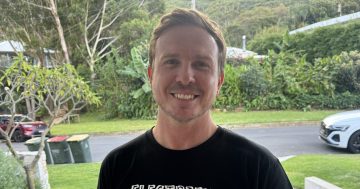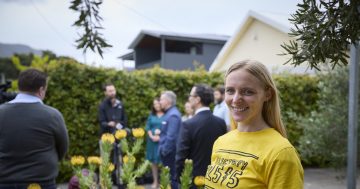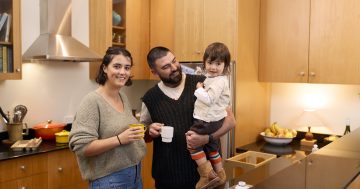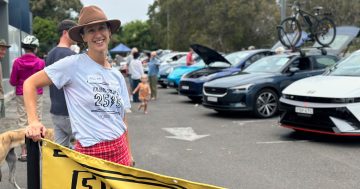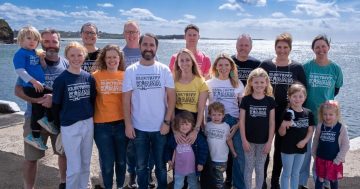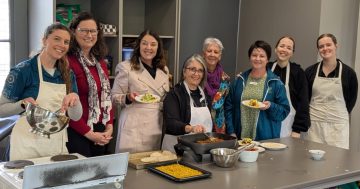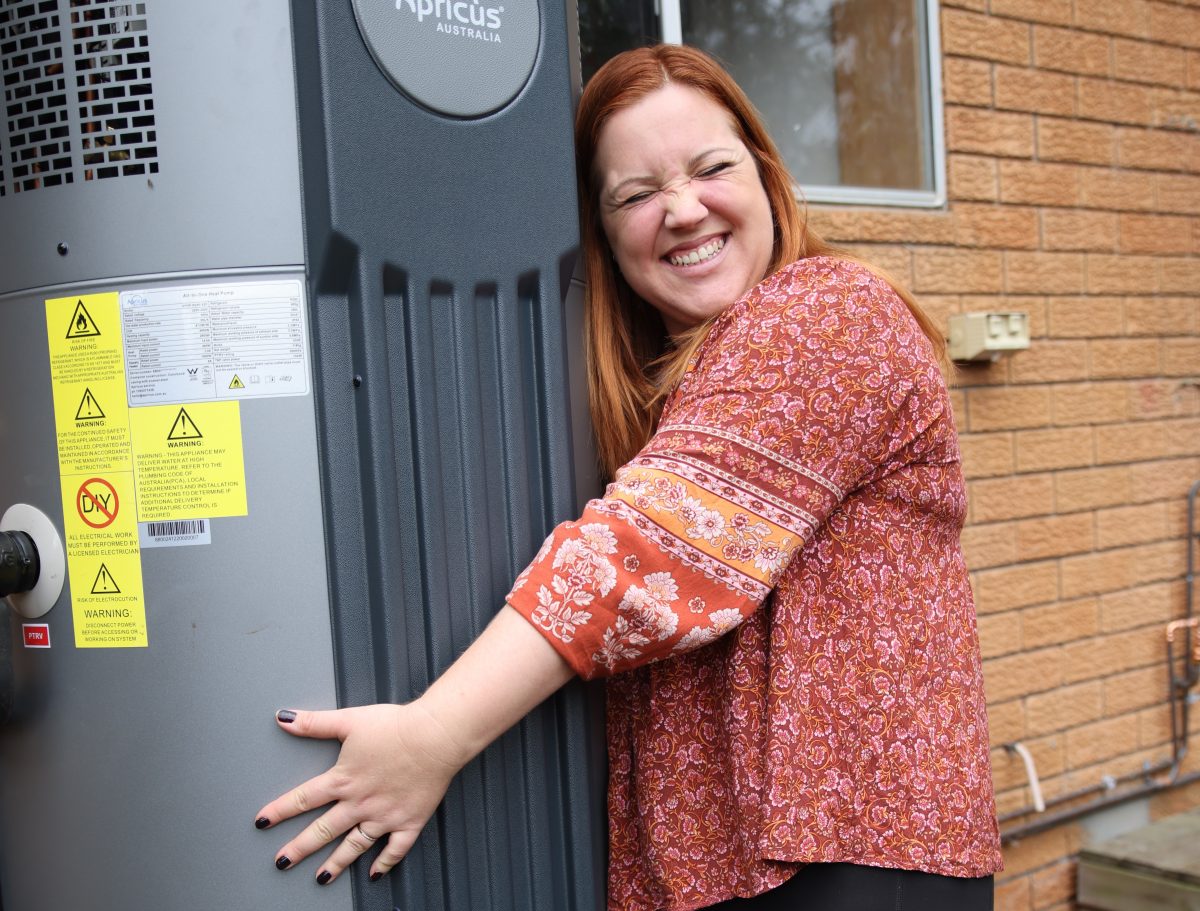
An all-electric household sparks joy for Electrify 2515’s Rebecca Wood. Photo: Rewiring Australia.
In Thirroul, Rebecca Wood’s household has become a testing ground for what the Illawarra’s energy future might look like. As part of the first 60 homes to join the Electrify 2515 pilot, she and her family — her husband, two kids, two dogs and two birds — have swapped gas for all-electric living.
For her, the shift was as much about financial pressure as it was about the environment.
“I consider myself an environmentalist and want to do my part to get us off gas,” she says.
“But in all honesty, the crazy cost of living pressure at the moment was a major driver for me to electrify our home. I still wanted to do my research and figure out how much everything would cost me, and the more I did the math, the more it seemed a no-brainer.”
When the opportunity to join the pilot came up, with subsidies to ease the upfront cost, Rebecca jumped at the chance.
The pilot, now in stage two of a rollout that commenced in October last year, aims to show what happens when whole neighbourhoods cut their reliance on gas and transition to electricity.
For Rebecca, that meant replacing her aging gas oven and cooktop with an induction stove, and her old instantaneous gas hot water system with a new heat pump hot water unit. A smart energy device and a switchboard upgrade rounded out the works.
“The Electrify 2515 team did all the research and hard work, and sent me three options,” she says. “The tradies came in and gave quotes on replacing appliances, and for me, it was as simple as choosing the cheapest option.
“The 2515 team have been really helpful when we had questions along the way. I couldn’t be happier with how it’s all gone.”
Rebecca received 50 per cent off the electric hot water system, induction cooktop and their installation. The smart energy device and upgrade from her old switchboard were 100 per cent covered by the pilot. She says the change has been “remarkable”.
“Now, I can actually see how and when I am using my electricity. I can literally turn off a light and watch my usage tick down,” she says. “For someone engaged in environmental issues, and someone who’s trying to reduce costs, that’s really exciting.
“Since switching to electricity, the difference in my bills has been remarkable, and our gas usage is now zero, so we have eliminated that bill altogether.”
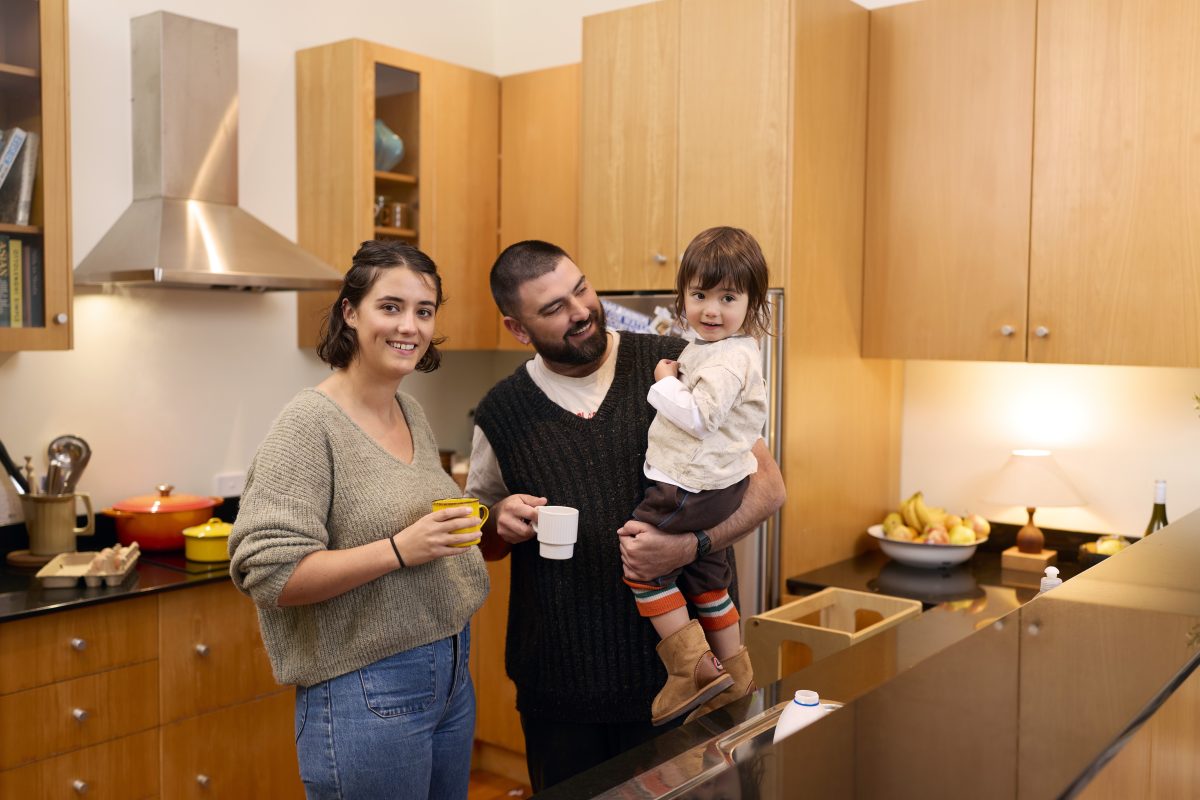
Learnings from stage one of the pilot, which has electrified 60 homes (like Tosca, Billy and Chip’s), are now shaping the rollout for a further 440 homes. Photos: Rewiring Australia.
Rebecca’s only question mark — whether an all-electric household would cut it for her family — was quickly put to bed after the switch.
“I did wonder if there would be hot water when we needed it, and if induction cooking would cut it. We make a lot of stir-fries,” she says.
“But we haven’t noticed a difference. With different working schedules and kids, we have baths and showers at various times of day in this household, and there’s always hot water. I can control it using an app on my phone, which is amazing. And we absolutely love our induction cooking stove — it hasn’t changed the things we cook. In fact, it’s far quicker to boil water than to use gas.
“It also feels good to eliminate gas appliances, which I know emit nitrogen dioxide and other pollutants linked to respiratory problems.”
Unlike many households in the area, Rebecca’s home, which is shaded by surrounding trees, isn’t suitable for rooftop solar. But she reckons it doesn’t make the changes any less worthwhile. On the contrary, it’s a bigger motivator, given current trends.
“In future, as there is more uptake of solar power generation and things like community batteries become more common, I know the cost to purchase electricity will go down,” she says.
Learnings from stage one of the pilot are now shaping stage two of the rollout, which aims to electrify a further 440 homes, for a total of 500 homes electrified during the pilot, which winds up in August 2026.
“We’re excited to get going with the main rollout,” Rewiring Australia Pilot Operations Manager John Buchelin says. “440 homes in 12 months is going to be a big challenge, but we’re ready and up for it.”









